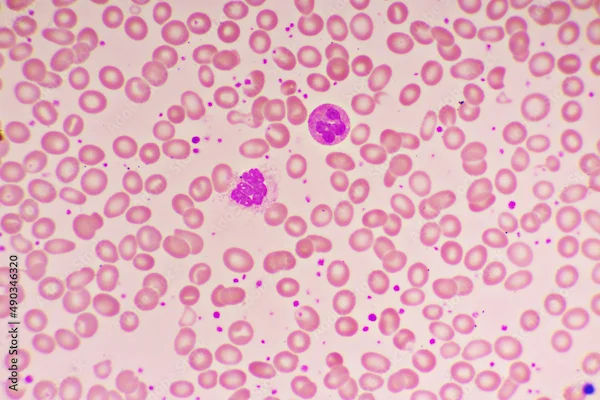Ferritin Test: Purpose, Procedure, Normal Levels & Interpretation
Know all about the ferritin test, its symptoms, risk factors, lifestyle and dietary changes needed to manage ferritin levels in the body and remain healthy.

Written by
Last updated on 3rd Jul, 2025
The ferritin test is a clinical way of understanding the iron levels of the human body and getting a glimpse of the overall health. Ferritin is a protein found in cells that plays a vital role in storing and releasing iron, which is essential for producing haemoglobin and transporting oxygen. Therefore, the ferritin test measures the level of this protein in the blood and identifies issues like iron deficiency, overload and anaemia. Therefore, understanding the importance of this test is essential as it helps to determine any underlying health issues.
When is a Ferritin Test Needed?
There are many reasons why a doctor would want the patient to take a Ferritin Test. Some of the common symptoms that indicate low iron content in blood are:
Weakness
Tiredness
Dizziness
Headache
Shortness of breath
Burning tongue
Pale or yellowish skin
Irregular heartbeat
Unusual cravings for clay, ice, dirt, liquorice and even soil
Alternatively, some common symptoms when the patient has excessive iron content in their blood would be:
Stomach pain
Metallic or grey-coloured skin
Joint pain
Weight loss
Decreased interest in libido
Blurred memory
Unexplained hair loss
Additionally, there are some medical conditions that directly or indirectly indicate the need for this test. These include –
Restless Leg Syndrome (RLS): This happens to patients whose legs start feeling uncomfortable, and they feel an urgency to move them even when lying down or sitting. A Ferritin Test determines if the iron levels have caused this.
Adult-Onset Still’s Disease (AOSD): This is usually when the patient has rare arthritis, in which they suffer from severe joint pains followed by fever and rashes due to the increase in ferritin in the blood.
Chronic Diseases: Chronic conditions like rheumatoid arthritis or chronic kidney disease can alter iron metabolism, necessitating ferritin tests to evaluate iron status.
Get Your Ferritin Levels Assessed
How is the Ferritin Test Conducted?
If the ferritin test is the only thing that is supposed to happen, patients are allowed to have food and drink water before. This test is done by collecting a blood specimen, so it is advisable to wear a shirt with short sleeves so that the blood can be collected easily. During the process, a tight elastic band is tied to the patient's hand, and the blood is collected.
Following the test, the individuals may feel –
Dizzy and light-headed
Pain during the needle incision
A bruise on the skin
Interpreting Ferritin Test Results
The normal levels of ferritin are –
24-336 ng/mL for male adults
24-307 ng/mL for female adults
25-200 ng/mL for newborn infants
Low Ferritin Levels: Here, the patient is a victim of anaemia, where the body is not able to absorb the required amount of iron from the blood. The doctor will prescribe some other tests to find the root cause of this. This condition leads to implications like fatigue, weakness, and breathing problems.
High Ferritin Levels: Here, the patient might have inflammation, an infection, or a fatal disease like cancer, which can raise ferritin levels. On the other hand, excessive iron pills or blood transfusions may lead to haemochromatosis or the excess presence of iron in the blood. This can be quite fatal and can destroy major organs.
Conditions Associated with Abnormal Ferritin Levels
Abnormalities in the Ferritin level can cause some severe conditions like –
Iron Deficiency Anaemia occurs when iron levels in the blood drop, reducing the growth of red blood cells. As a result, the human body fails to distribute adequate oxygen to muscles and other organs, and individuals suffer from fatigue and weakness.
Haemochromatosis: In this genetic disorder, the human body absorbs more iron than it requires. The excess iron is stored in bodily tissues and organs like the liver, heart, and pancreas. As a result, individuals suffer from liver cirrhosis, diabetes, and heart disease.
Liver Dysfunction: The liver is the primary iron storage organ in the human body, and any damage to this organ releases excessive iron into the bloodstream. Elevated ferritin due to liver diseases results in problems like jaundice and severe abdominal pain.
Treatment for Abnormal Ferritin Levels
In case of low ferritin levels, doctors recommend oral medicines in the form of iron tablets or liquid syrups. If the oral medicines are not enough, doctors suggest iron dosages via IV (intravenous) infusion, which works for most patients. Usually, one shot works for everyone. Some people might need two or more to improve their ferritin levels.
When ferritin levels are high, the doctor suggests Phlebotomy or the removal of excessive iron-infused blood. Iron chelation therapy can also remove excessive iron content from the body through an injection or an oral pill.
Lifestyle and Dietary Impact on Ferritin
Ferritin levels are greatly influenced by diet and lifestyle choices. Depending on what individuals eat and how they live, this iron-storing protein can malfunction, leading to other health complications.
Here are some foods that increase the iron content in the body –
Lean red meat
Oysters
Tofu, beans and lentils
Eggs
Green leafy vegetables like spinach, kale and broccoli
Raisins
Fortifies cereals
On the other hand, some food items that decrease the iron content and should be avoided include–
Dairy products
Calcium-rich food
Dark-green leafy vegetables
Lean fish
Turmeric
Whole grains
Non-sourdough bread
Beverages having tannin, like tea and coffee
Individuals can also take supplements to cure this condition. They can take ferrous sulphate, ferrous gluconate, ferrous fumarate, and polysaccharide iron complex. Additionally, consuming vitamin C tablets proves helpful.
Risks and Complications of Ferritin Test
It is important to understand that the ferritin test has its own limitations, which are –
Ferritin tests are not enough to recognise the root cause of iron deficiency or excessive iron content. So, further tests are prescribed by the doctor.
Ferritin levels may be affected by a number of factors, such as the patient's current medication, inflammation, or the presence of chronic conditions.
Ferritin levels vary for infants, teenage kids, pregnant women, etc.
The risks associated with taking a ferritin test are very low. However, adequate measures should be taken during blood collection to ensure the patient feels safe and comfortable.
Alternative Tests Related to Ferritin
While the ferritin test proves to be extremely useful, there are several other tests that can be used to assess iron levels and diagnose conditions like iron deficiency anaemia or iron overload. Some of these popular tests are –
Serum Iron Test: The serum iron test measures the iron circulating in the blood. Iron in the blood is transported by a protein called transferrin, which this tests assess to determine the iron levels.
Total Iron Binding Capacity (TIBC): This test measures the total amount of iron that transferrin can bind in the blood. It offers a more indirect view of the iron content of the human body.
Transferrin Saturation: This test calculates the amount of iron bound to transferrin. Similarly, it also offers a view of the current iron count of the human body and indicates abnormalities.
Get Your Iron Levels Checked
Conclusion
The ferritin test is a crucial tool in assessing the body’s iron storage. Through its parameters, it helps diagnose conditions such as iron deficiency anaemia, iron overload, and other related health issues. Therefore, individuals can make the necessary calls by understanding the factors that influence ferritin levels, interpreting the results correctly, and recognising conditions associated with abnormal ferritin levels. They can consult the doctors, change their lifestyle choices and diet and lead healthy and worry-free lives.
Consult Top General Physicians
Get Your Ferritin Levels Assessed
₹940(₹2350)60% off
Consult Top General Physicians

Dr. Liritha C
General Physician/ Internal Medicine Specialist
5 Years • MBBS, MD (GENERAL MEDICINE)
Hyderabad
Apollo 24|7 Clinic, Hyderabad

Dr. Siri Nallapu
General Practitioner
5 Years • MBBS
Hyderabad
Apollo 24|7 Clinic, Hyderabad

Dr. Rajib Ghose
General Practitioner
25 Years • MBBS
East Midnapore
VIVEKANANDA SEBA SADAN, East Midnapore

Dr. Rajib Ghose
General Physician/ Internal Medicine Specialist
26 Years • MBBS
Kolkata
B Ghose Foundation Doctor's Chamber, Kolkata
(25+ Patients)

Dr Summaiya Banu
General Practitioner
8 Years • MBBS
Hyderabad
Apollo 24|7 Clinic, Hyderabad
(175+ Patients)





